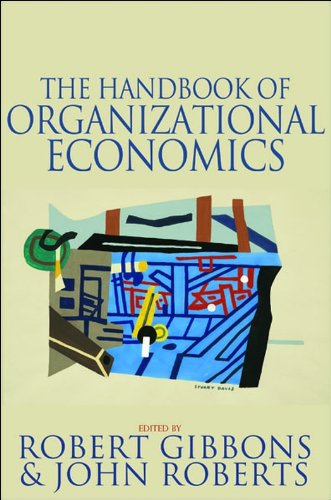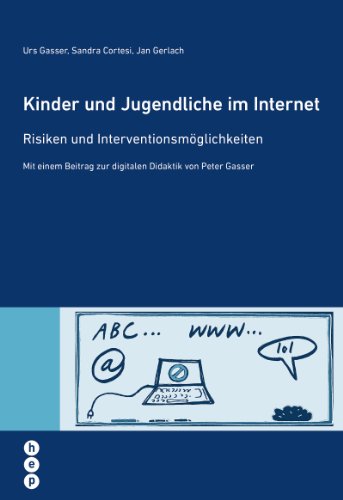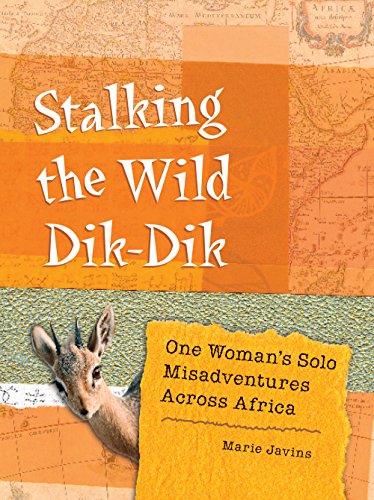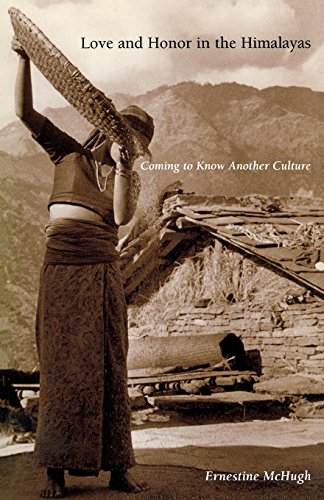Ebook The First Thousand Years, by Robert Louis Wilken
The First Thousand Years, By Robert Louis Wilken. What are you doing when having downtime? Talking or searching? Why don't you attempt to read some book? Why should be reviewing? Checking out is just one of enjoyable as well as satisfying activity to do in your downtime. By reading from numerous sources, you can discover new info and experience. Guides The First Thousand Years, By Robert Louis Wilken to read will be numerous beginning with scientific e-books to the fiction books. It indicates that you could read the books based on the need that you wish to take. Certainly, it will certainly be various and also you could review all e-book kinds any type of time. As below, we will show you an e-book ought to be checked out. This publication The First Thousand Years, By Robert Louis Wilken is the choice.
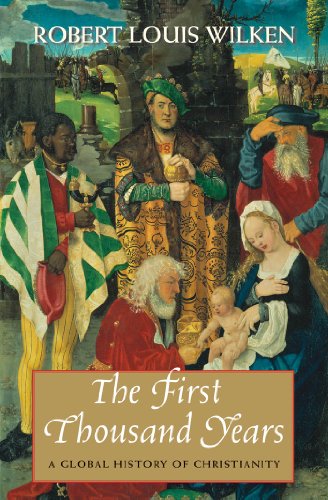
The First Thousand Years, by Robert Louis Wilken

Ebook The First Thousand Years, by Robert Louis Wilken
Do you assume that reading is an essential activity? Discover your reasons adding is very important. Reading a publication The First Thousand Years, By Robert Louis Wilken is one part of enjoyable tasks that will certainly make your life top quality better. It is not regarding simply exactly what sort of publication The First Thousand Years, By Robert Louis Wilken you read, it is not just about the amount of e-books you check out, it has to do with the behavior. Reviewing habit will be a method to make e-book The First Thousand Years, By Robert Louis Wilken as her or his friend. It will certainly no matter if they invest money and invest even more e-books to finish reading, so does this e-book The First Thousand Years, By Robert Louis Wilken
Why ought to be this book The First Thousand Years, By Robert Louis Wilken to read? You will certainly never ever get the expertise as well as experience without managing yourself there or attempting by on your own to do it. Thus, reading this publication The First Thousand Years, By Robert Louis Wilken is required. You could be fine as well as appropriate sufficient to obtain how important is reviewing this The First Thousand Years, By Robert Louis Wilken Even you consistently read by responsibility, you can assist yourself to have reading e-book habit. It will certainly be so beneficial as well as enjoyable then.
However, how is the means to obtain this e-book The First Thousand Years, By Robert Louis Wilken Still perplexed? It doesn't matter. You can take pleasure in reviewing this e-book The First Thousand Years, By Robert Louis Wilken by on the internet or soft data. Just download and install the publication The First Thousand Years, By Robert Louis Wilken in the link provided to see. You will certainly obtain this The First Thousand Years, By Robert Louis Wilken by online. After downloading and install, you could conserve the soft documents in your computer system or device. So, it will certainly relieve you to read this e-book The First Thousand Years, By Robert Louis Wilken in certain time or place. It may be not exactly sure to take pleasure in reviewing this book The First Thousand Years, By Robert Louis Wilken, because you have great deals of job. However, with this soft data, you can enjoy reading in the extra time even in the voids of your jobs in office.
Once more, checking out routine will certainly always offer valuable perks for you. You might not need to invest many times to read the e-book The First Thousand Years, By Robert Louis Wilken Simply alloted a number of times in our extra or downtimes while having dish or in your workplace to read. This The First Thousand Years, By Robert Louis Wilken will certainly reveal you brand-new thing that you could do now. It will certainly assist you to enhance the high quality of your life. Event it is merely an enjoyable e-book The First Thousand Years, By Robert Louis Wilken, you can be happier and more fun to appreciate reading.

This sweeping history begins with the life of Jesus and narrates the remarkable story of Christianity as it unfolded over the next thousand years. Unique in its global scope, the book encompasses the vast geographical span of early Christianity, from the regions around the Mediterranean Sea through the Middle East and beyond to central Asia, India, and China. Robert Louis Wilken, beloved professor and renowned author, selects people and events of particular importance in Christian history to bring into focus the full drama of the new religion's development. The coming of Christianity, he demonstrates, set in motion one of the most profound revolutions the world has known.Wilken tracks the growth of Christian communities around the ancient world and shows how the influence of Christianity led not only to the remaking of cultures but also to the creation of new civilizations. He explores the powerful impact of the rise and spread of Islam on Christianity and devotes several chapters to the early experiences of Christians under Muslim rule in the Middle East, Egypt, north Africa, and Spain. By expanding the telling of Christian history to encompass perspectives beyond just those of the West, Wilken highlights how interactions with new peoples and languages changed early Christian practices, even as the shared rituals of Christian people bound them in spiritual unity despite their deep cultural differences.
- Sales Rank: #83301 in eBooks
- Published on: 2012-11-27
- Released on: 2012-11-27
- Format: Kindle eBook
Review
"Compelling. . . . An outstanding achievement.”—Maria E. Doerfler, Commonweal (Maria E. Doerfler Commonweal)
“Brilliant . . . a riveting story.”—Publishers Weekly (Publishers Weekly)
“Ambitious and wide-ranging . . . [This] highly accessible volume abounds with lively tales and fascinating connections, and the color illustrations are a delight. Wilken’s recent scholarship has also given him a global perspective of impressive sweep.”—Philip Jenkins, Christian Century (Philip Jenkins Christian Century)
“Elegantly written [and] highly readable.”—First Things (First Things)
“Robert Wilken has written the best kind of authoritative historical survey. Its treatment is learned, thorough, but also accessible for all aspects of early Christian history, and especially for the great significance of Islam to the entire Christian world from the seventh century forward.”—Mark Noll, author of The Rise of Evangelicalism: The Age of Edwards, Whitefield, and the Wesleys (Mark Noll 2012-08-06)
“A marvelous and unique survey, learned and authoritative, yet also a perfect introduction to the early history of Christianity. Robert Wilken redraws many boundaries, expanding horizons, summarizing and analyzing with consummate skill. This beautifully written book sets new standards on multiple levels, and should stand for a long time as the benchmark by which all other surveys are measured.”—Carlos Eire, author of Waiting for Snow in Havana: Confessions of a Cuban Boy (Carlos Eire 2012-08-06)
“This is a rich and wonderful book, not only because of Robert Wilken's narrative gifts, but because of his immense scholarly range and sympathies. His is one of the few treatments of Christianity's first millennium for Anglophone readers that embraces the faith's whole history, cultural and geographical, Eastern and Western, Chalcedonian and Non-Chalcedonian, European, Asian, and African. It is a pure joy to read.”—David Hart, author of Atheist Delusions: The Christian Revolution and Its Fashionable Enemies (David Hart 2012-08-06)
“Robert Wilken reminds us that our association of “global” developments in culture, communications and economics with the beginning of the Third Millennium forgets the world of the First Millennium, which was integrated by a universal faith. This book is both unique and timely, the fruit of broad erudition and deep reflection.”—Francis Cardinal George, O.M.I., Archbishop of Chicago (Francis Cardinal George 2012-08-06)
“I’ve been a fan of Robert Wilken for decades, but even he outdid himself on this one, a remarkable blend of scholarly precision and attractive readability. It’s even more: I found it also spiritual reading, from a professor who detects something beyond the worldly at work in one of the most colorful institutions around.”—Timothy Michael Cardinal Dolan, Archbishop of New York (Timothy Michael Cardinal Dolan)
“A lively, engaging, and highly enjoyable tour of the church’s first millennia.” —Jacob Sweeney, Semper Reformanda (blog) (Jacob Sweeney Semper Reformanda 2013-04-01)
"Readable and reliable."—Anthony M. Stevens-Arroyo, Catholic Books Review
(Anthony M. Stevens-Arroyo Catholic Books Review)
“[A] masterly and generous-spirited account . . . [that] brings new freshness and clarity.”—Eamon Duffy, New York Review of Books (Eamon Duffy New York Review of Books)
"[W]ilken's book would make a nice addition to the library of a pastor or seminary student seeking an up-to-date overview of the first millennium of Christian history. His writing style makes it easy and interesting to read....His emphasis on the spread of Christianity beyond the Roman empire shows that the gospel has had a global reach from the very beginning of the church's history."—Joel Otto, Wisconsin Lutheran Quarterly (Joel Otto Wisconsin Lutheran Quarterly)
From the Author
An excerpt from Robert Louis Wilken’s The First Thousand Years:
In the early sixth century, a merchant set out from Egypt to sail to the southern coast of India. Like earlier visitors from the Roman Empire, he had undertaken the long journey to bring home peppercorns from the Malabar coastal region, and he called India the land where “pepper grows.”
The name of the sixth-century traveler was Cosmas, and because of his journey to India he is known to historians as Cosmas Indicopleustes, Cosmas the Indian Navigator. Cosmas was a Christian, and in his Christian Topography he reports on Christian communities discovered in his travels. He spent some time in Malabar, the southwestern coast of India, in present-day Kerala, where he found a church with a bishop appointed from Persia. He also visited Socotra, an island in the Arabian Sea, approximately two hundred miles south of Yemen and east of Somalia, where there were Christians with clergy who received their ordination from Persia. But even more striking, he got as far as Ceylon (present-day Sri Lanka) and there he discovered a church composed of “Persian Christians” performing, in his words, the “full ecclesiastical rite.”
Our histories tell us little about the mission to the Far East. As the spread of Christianity to northern Europe was the work of Latin-speaking monks, and the spread of Christianity among the Slavs was the work of Greek-speaking monks, so the spread of Christianity to the east was the work of Syriac-speaking monks from the Church of the East.
About the Author
Robert Louis Wilken is William R. Kenan Professor of the History of Christianity Emeritus, University of Virginia. He lives in Washington, D.C.
Most helpful customer reviews
40 of 41 people found the following review helpful.
An outstanding survey by a gifted writer.
By Peter S. Bradley
Robert Louis Wilken's "The First Thousand" years is an exemplary survey of Christianity's first millenium. Wilken starts with the life of Jesus and follows an approach encyclopedically organized around topics and geography to close with the Christianization of the Slavs in the 10th Century. Along the way, he touches on chapters devoted to architecture, christological issues, the rise of Islam, music, China, India, Northern Europe, Justinian and Charlemagne.
That's a lot of ground to cover. Wilken is a wonderful prose stylist and his writing is graceful and informative. He also brings his own perspective to the survey and so we are treated to insights and topics that readers don't normaally get in usual surveys. For example, those familiar with Wilken's previous works will greet the discussions of Celsus [from The Christians as the Romans Saw Them] and the Cappodocian Fathers and Maximus the Confessor [from The Spirit of Early Christian Thought: Seeking the Face of God] like they were renewing an acquaintance with old friends.
As a survey, Wilken does cover some familiar ground - and strangely he does repeat information provided under one topic when he moves to tangentially related topics - but by and large Wilken's choice of topics is new, particularly in the decision to give non-European Christianity the attention it deserves. Thus, Wilken does emphasize how much of the Christian heartland of the first thousand years was outside of Europe and how at the close of the first millenium, Christianity, which had spread throughout the Middle East and Persia and Egypt and North Africa, found itself under Muslim rule. Wilken also compares the Latin approach to spreading Christianity, which brought the high culture into the Latin language, with the Eastern approach, which invented new alphabets for new languages and translated the sacred texts into those languages. I filed away a bunch of different factoids, e.g., "Copt" is a corruption of "Aegypos," i.e., Egyptian, with the first and last syllable lopped off by the Arabic invaders; and, Charlemagne's theologians were opposed to the veneration of icons, and although they were brought around to agreeing that it was not idolatrous, the residual distrust of the practice is a reason why icons never really caught on in the West; and it was a Christian philosopher named Philoponus who first injected the notion of a latent inertia into Aristotle's physics. (See p. 254.) We also get a perspective on the slaughter of Christians in Jerusalem by Zoroastrian Persians and how the long tradition of Syriac-speaking Christians gave way to the even longer tradition of Arabic-speaking Christians (who in some Muslim countries may well be in their last days.)
Wilken is exceptionally good at introducing us to the characters that make up this history, and, like any good survey, the introduction can spark the imagination and interest to wander off any of a number of departure points. Wilken's simple explanation of the what was at issue in the Nestorian controversy is also worth the price of admission. One caveat I will note is that this book lacks footnotes. We don't know what sources Wilken is citing. This is a problem insofar as I would like to follow up on some of his quotations from learned authorities. This is the second book I've seen with that feature. Perhaps the notes are on some website, but I could not find a reference to them. I don't know if this is a new trend in scholarship, but for those of us who are interested in following up on the material, it is disconcerting.
On the other hand, a nice feature of the book is that it includes five or six pages of maps, a chronological chart with key names and events and some nice color photos. For what it's worth, Wilken's observations about architecture intrigued me so much that I was induced to locate websites with pictures of the great mosque in Cordoba and an interactive 360 degree "virtual tour" of the Hagia Sophia. I'm not much of an "architecture buff" but it was awe-inspiring to think, for example, that I was looking at a place where Justinian once walked.
16 of 16 people found the following review helpful.
Another Excellent Book from Prof. Wilken
By Bill
If you enjoyed Prof. Wilken's "The Spirit of Early Christian Thought" and "The Christians As the Romans Saw Them," then you will almost certainly enjoy this book, intended for the general reader but crammed with interesting information about the Church's growth and struggles during its first millenium. Written with the engaging style and narrative flow of his earlier books, Prof. Wilken covers an immense amount of territory--geographic, religious, and historical--in a book that is relatively short for the scope of its subject matter, including forays into the evangelization of far-flung areas such as Central Asia, India, and China. The author is adept at placing important events in their full context. See, for example, how adroitly he places the events surrounding Christ's birth in Palestine within the context of both the Roman Empire's temporal power and the Pax Romana. The several chapters he devotes to the rise and rapid spread of Islam confirm his belief that this new religion posed the greatest threat to Christianity during its initial thousand years. Some professional reviewers have credited this book as Prof. Wilken's "tour de force." IMHO, that's a well-deserved appellation!
54 of 67 people found the following review helpful.
finely written but same old territory
By VA Book Lover
I am a huge fan of Wilken's book The Spirit of Early Christian Thought: Seeking the Face of God. I found it to be one of the most elegant and profound expositions about the early church that I have ever read.
But this new book, which I was looking forward to as a kind of grand synthesis, is something of a disappointment. 100 pages in I find myself wondering why he wrote the book. Nothing is new, and at 359 pages it moves at a brisk pace where much detail is lost -- indeed, where the gaps yawn like chasms.
The delay in the book's publication suggests that the author felt the need to digest the vastly more complicated narrative of this 2010 history Christianity: The First Three Thousand Years. They are different beasts, though.
The more apt comparisons are two classics: The Early Church (The Penguin History of the Church) (v. 1) and The Rise of Western Christendom: Triumph and Diversity, A.D. 200-1000, 2nd Edition (The Making of Europe). What I cannot figure out is why or how Wilken supercedes either of these classics. Whatever his ambition, he doesn't succeed. Sure, the writing is elegant, but both Chadwick and Brown are hard to surpass.
My advice: stick with the classics.
The First Thousand Years, by Robert Louis Wilken PDF
The First Thousand Years, by Robert Louis Wilken EPub
The First Thousand Years, by Robert Louis Wilken Doc
The First Thousand Years, by Robert Louis Wilken iBooks
The First Thousand Years, by Robert Louis Wilken rtf
The First Thousand Years, by Robert Louis Wilken Mobipocket
The First Thousand Years, by Robert Louis Wilken Kindle


